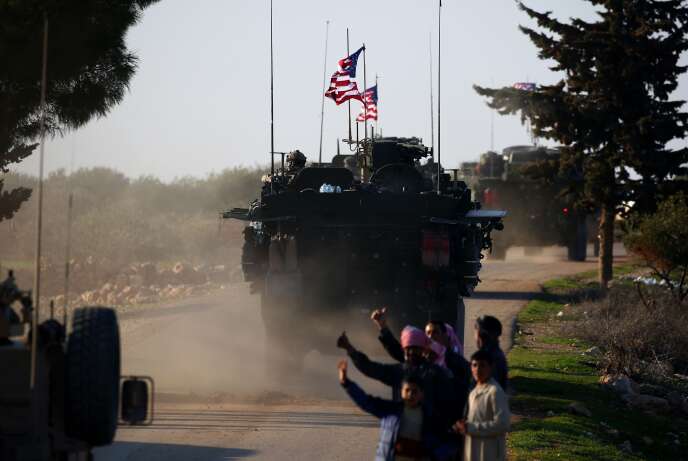
Donald Trump’s decision, made with little regard for his own advisers and experts, is a devastating blow for those who fought against the jihadis alongside the United States.
Donald Trump prefers to make decisions based on his instincts rather than listen to his advisers. On Wednesday, Dec. 19, he demonstrated this once again by deciding to withdraw the special forces that have been deployed in Syria for over two years. His administration’s experts on jihadi terrorism and the Middle East advocated for the opposite: to maintain this stabilizing force, with no international mandate, in a country that has fallen victim to the cross-ambitions of Turkey, Iran and Russia. The president of the United States, true to the short-termism and unilateralism that pervade most of his decisions on foreign policy, took no notice.
In this case, the announcement seems to have replaced strategy. The Islamic State is certainly very weakened and cornered, but the news of its definitive demise appears to be, at the very least, premature. Thousands of combatants can still feed a long-winded guerrilla war and sustain a destructive blaze that knows no borders.
This is especially true as the combatants’ capacity to rebuild remains intact, which begins with the nature of the Syrian regime, now rid of all forms of American pressure. Today, the regime, perched on the shoulders of Russian and Iranian sponsors who now have a free hand in a large part of the East, can claim victory: The new regional order rattles Trump’s ambition to reduce Iran’s influence. As Hassan Mohammed, a Kurdish-Syrian senior official, said in a Le Monde synopsis: “Washington set several goals with its presence in Syria. Not only do these goals remain unfulfilled, but the retreat is going in the opposite direction.”
Betrayal for the Kurdish Forces
The blow is devastating for those who fought against the jihadis alongside the United States. For the predominantly Kurdish local forces that are now under threat from Turkey, this retreat is a betrayal, pure and simple. Washington may very well herald a “new phase” of the fight against the Islamic State; in mentioning Sinai and Libya, the message is clear: Trump’s United States has little use for their reserve troops. It seems to laugh at an inferno that could once again feed the migratory waves responsible for weakening its European allies.
After his election, Trump had the opportunity to avoid confronting a crisis of international scale. He came close to it with North Korea before opting, with a brazen dose of naiveté, for an opening with Kim Jong Un. The future will soon reveal whether the situation recovered from a stroke of genius or incompetence.
But the lessons to be learned in Syria thus far are worrisome. The very unpredictability for which the president takes responsibility has spread through his administration like leprosy. The decision-making chain’s proven vacuity devalues the word of spokespersons from Washington’s allies and enemies alike who are constantly susceptible to contradiction from their own commander in chief. The direction which “America First” itself provides is thrown into panic while the president decides against that which would fundamentally revive American interests.
This “America First” is a pipe dream when it involves the most threatening kind of danger for the world’s balance as well as for the United States’ safety. And unfortunately, its helmsman only seems to be capable of adding confusion to the chaos.

Leave a Reply
You must be logged in to post a comment.